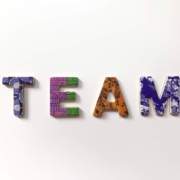The emergence of Web3 and blockchain technology over the past decade has ushered in an entirely new paradigm for the Internet and digital systems. However, the rapidly evolving landscape has also highlighted the stark skills and knowledge gap within traditional tech talent. Most IT professionals are still anchored in the protocols and frameworks of Web2, while blockchain, cryptoassets, decentralized apps, NFTs, and metaverse experiences represent an entirely distinct technical universe.
Organizations seeking to integrate Web3 capabilities are running into a shortage of qualified talent. Existing software engineers, product managers, and technologists often lack the prerequisites to deliver blockchain-based solutions. Terms like “gas fees”, “dApps” and “cold wallets” remain elusive buzzwords rather than actionable tools for deployment. Just as concerning, many candidates claiming Web3 skills overstate their practical experience in an effort to capitalize on red-hot market demand.
Without some form of universal, verified benchmark, it’s exceptionally difficult for employers to validate competencies in Web3 skill sets. Organizations can’t afford disjointed trial and error in blockchain development, and couldn’t risk introducing flawed smart contracts. Web3 solutions require seamless integration of distributed ledger technology, consensus mechanisms, cryptography, and decentralized governance.
Bridging the widening chasm requires a standardized set of credentials that clearly delineate the prerequisites and capabilities required at graduated levels of blockchain expertise. The Web3 Certification Board (W3CB) represents the foremost effort to establish such certifications, bringing coherence and consistency to organizations seeking specialized talent.
The W3CB draws directly from accreditation models in other technical fields. Reputable IT certifications such as Microsoft and Cisco credentials offer universally recognized benchmarks in areas like network administration and software development. The qualifications issued by the W3CB would offer similar assurances within various realms of blockchain technology.
The foundation already provides a strong, thoughtful structure aligned to market needs. The W3CB has established 4 core certification categories:
* Web3+: Baseline understanding of web3 technologies and functions
* Blockchain+: Proficiency in building on blockchain platforms like Ethereum, Hyperledger, Algorand, Hedera Hashgraph and other networks
* FinTech+: Skills related to DeFi and other financial product offerings
* GameFi+: Aligning decentralized ledger technology with online gaming
These role-specific credentials allow candidates to validate capabilities without overstating expertise. Blockchain developers can prove proficiency in pertinent coding languages and platforms without positioning themselves as a qualified expert. The delineations avoid gaps where complex duties get assigned to underqualified employees.
For employers, Web3 certifications miraculously simplify sourcing and vetting viable candidates. Organizations can identify applicants who objectively demonstrate the capabilities required for a specific job function. The certifications become a universal passport that provides assurances whenever that individual changes jobs or assignments.
Standardization also brings order for professionals looking to transition careers from Web2 to Web3. Veterans of software development or network engineering can upskill selectively rather than embarking on a random self-education process. The certifications roadmap a structured path from basic prerequisites to specific concentrations.
Ultimately, Web3 credentials must evolve as quickly as the underlying technology itself. The W3CB has structured its certifications around categories and roles designed to remain stable reference points amid rapid innovation. For instance, “Blockchain Application Developer” encapsulates foundational aspects of dApp programming that will endure over time even as new frameworks and APIs emerge.
Of course, skepticism regarding Web3 education reflects broader uncertainties about blockchain’s long-term viability. But the underlying fundamentals around decentralization, transparency, and automation seem destined to permeate some arena of technology if not business. While the hype cycle turns, professionals with certified qualifications will remain eminently marketable.
Just as Rosetta Stone’s decoding of Egyptian hieroglyphs opened up an ancient civilization, certified knowledge of Web3 systems unlocks untold potential. Organizations depend on a qualified pool of talent to strategically transition toward decentralized, tokenized ecosystems. Those capabilities don’t arise spontaneously – they require an educational Rosetta Stone that decodes today’s blockchain technology and its innumerable applications. Across industries, the firms that actively embrace Web3 credentials will position themselves at the forefront of digital transformation.








